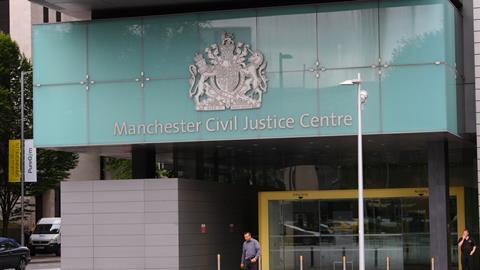Lawyers need to be ‘prised away from the comfort blanket of feeling the necessity of having a witness confirm a thread of correspondence’, a judge has said.
Judge Stephen Davies also warned that parties in the Business and Property Courts who ‘indulge in unnecessary trench warfare’ over trial witness statements ‘can expect to be criticised and penalised in costs’.
In Blue Manchester Ltd v Bug-Alu Technic GmbH and another, the High Court was asked to strike out parts of witness statements served on behalf of a defendant for failure to comply with Practice Direction 32 and Practice Direction 57AC.
Davies said he hoped that, ‘as PD57AC becomes more familiar to practitioners and as the principles become clearer such heavily contested, time-consuming and expensive applications become the exception rather than the norm’.
The judge found that a number of the witness statements in issue ‘contain identical or very similar statements in respect of particular issues’. ‘It is difficult to see in my judgment how this could ever occur if the requirements of PD57AC are conscientiously complied with,’ he said.
Davies said: ‘The fact that a legal representative is permitted to take primary responsibility for drafting a witness statement does not justify departing from the clear requirement that the witness statement should, where practicable, be in the witness’s own words assuming compliance with the detailed requirements of PD57AC.’
However, compliance does not mean that ‘every section of every witness statement must contain a separate introduction, confirming whether it is made from personal knowledge or based on information or belief’, the judge added.
Davies said that part of one statement, which contained ‘a classic old style narrative recital of and extracts from a series of meeting notes and correspondence’, went ‘far beyond what is necessary’.
He described it as ‘a very good illustration of lawyers needing to be prised away from the comfort blanket of feeling the necessity of having a witness confirm a thread of correspondence, because otherwise it might in some way disappear into the ether or be ruled inadmissible at trial’.
He also rejected the contention that ‘a witness against whom allegations are made … is thereby given carte blanche to disregard PD32 or PD57AC by replying to the allegations in a way which includes argument, comment, opinion and/or extensive reference to or quotation from documents’.
Davies held that ‘the non-compliances do not justify striking out the witness statements’, which he said is a ‘very significant sanction which should be saved for the most serious cases’, but required compliant witness statements to be served by mid-December.




























6 Readers' comments